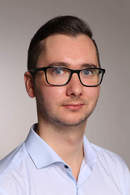Contact
Visiting address: Historicum, Schellingstraße 12, Raum K023, 80799 München
Room:
K023
Phone:
+49 (0) 89 / 2180-5476
Email:
claus.spenninger@lrz.uni-muenchen.de
Office hours:
Thursdays, 2-4 pm
Please put your name on the list hanging outside my office. If you are not able to do so, please write me an e-mail.
Further Information
PhD Project
Matter and Conflict. Ideas of Progress and Critique of Religion in 19th Century Scientific Materialism (1847-1881)
My project investigates the mid-19th century debates about “Scientific Materialism”, a term that incorporates scientific, philosophical, theological, and political concepts. The main representatives of this brand of materialism were the Swiss-German zoologist Carl Vogt (1817-1895), the Dutch-Italian physiologist Jacob Moleschott (1822-1893), and the German physician Ludwig Büchner (1824-1899). After 1849, they started to propagate, mainly through popular science writing, the idea that all phenomena, including life itself, can be explained on a purely material basis. Only science, they claimed, could serve as the true basis for a modern worldview. At the same time, the materialists distanced themselves from religion and natural philosophy, and displayed strong anticlerical tendencies. All of this resulted in countless critiques of materialism - philosophers, theologians, scientists, and politicians publicly warned of a spread of materialism. The ensuing debates discussed the relationship of science, religion, and politics in post-revolutionary Europe.
So far, the debates about scientific materialism were mainly a theme for historians of philosophy and ideas. My project looks at the topic by combining perspectives both from the history of science and the history of religion. I argue that the idea that science and religion are necessarily in conflict with each other (“conflict thesis”) had its origins in the middle of the 19th century - and scientific materialism played an important part in spreading this narrative to the public. My aim is to provide a new perspective on the relationship between secular and religious interpretations of the world in 19th century Europe.

